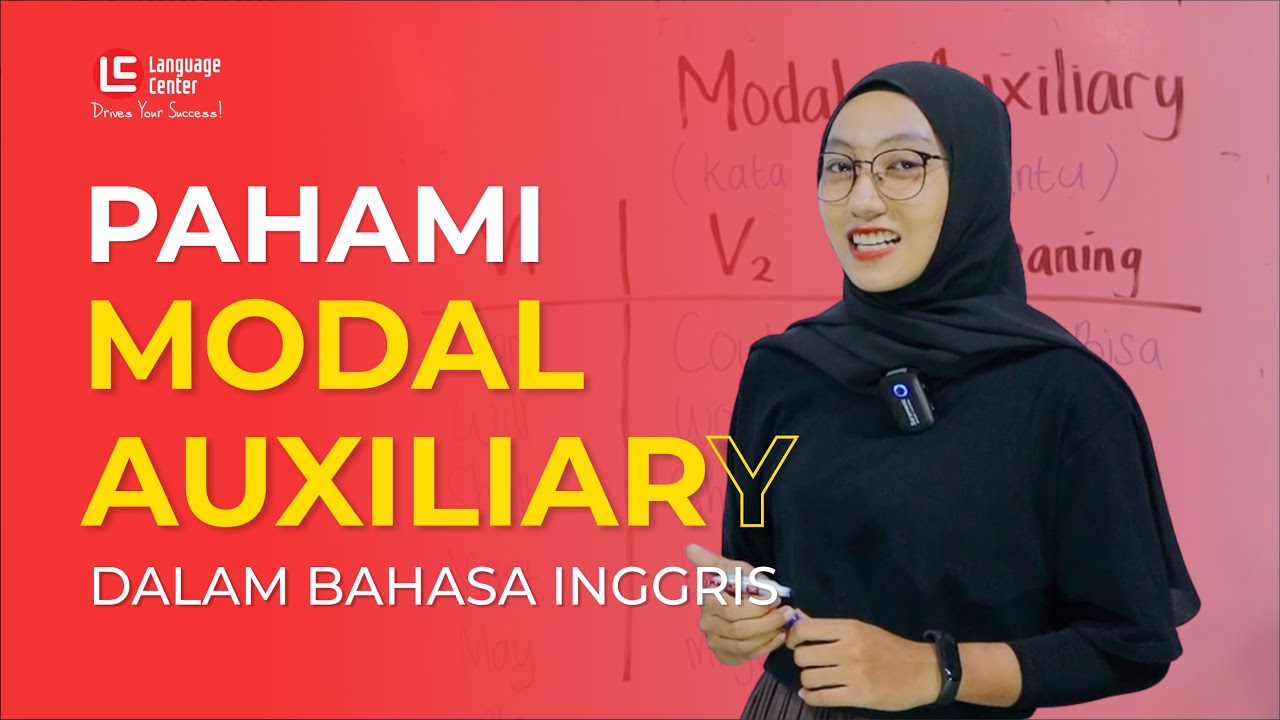English Grammar: Modal Verbs of Certainty – MIGHT, MAY, MUST, CAN
Summary
TLDRIn this video, Jade explains how to use modal verbs to make deductions about the present and past. She provides examples of different modal verbs like 'must,' 'might,' 'may,' and 'can't' to show how they reflect certainty, possibility, and impossibility. Jade walks viewers through the structure of sentences, emphasizing how modal verbs, along with the bare infinitive or past perfect, help express interpretations of observed situations. The video aims to teach viewers how to correctly use these grammar structures with practical examples, concluding with a quiz to reinforce learning.
Takeaways
- 😀 Modal verbs are used to make deductions about a situation, interpreting the evidence you observe.
- 😀 The structure for making present-time deductions is 'modal verb + bare infinitive'. Example: 'He must be unwell.'
- 😀 'Must' indicates certainty in deductions about the present, like 'He must be unwell.'
- 😀 'Might' suggests possibility and is less certain than 'must'. Example: 'He might not be sleeping well.'
- 😀 'May' is a slightly more formal version of 'might' in British English. Example: 'He may be stressed.'
- 😀 'Can't' is used to show certainty in negative deductions. Example: 'He can't be feeling well.'
- 😀 For past deductions, use 'modal verb + have + past participle'. Example: 'He must have forgotten about it.'
- 😀 'Must have' indicates certainty when talking about past events. Example: 'He must have forgotten about the meeting.'
- 😀 'Might have' and 'may have' reflect possibility in past events. Example: 'He might have missed his train.'
- 😀 'Can't have' expresses certainty in a negative deduction about the past. Example: 'He can't have known about it.'
- 😀 Remember: Use 'have' in the structure for past deductions to indicate that the situation occurred earlier.
Q & A
What does it mean to make a deduction in the context of modal verbs?
-Making a deduction means interpreting the evidence you observe and forming a conclusion or assumption about the situation. It involves using modal verbs to express the level of certainty or possibility regarding that interpretation.
How do we form a deduction about the present using modal verbs?
-To form a deduction about the present, we use the structure: modal verb + bare infinitive. For example, 'He must be unwell' or 'He might not be sleeping well'. The modal verb reflects the certainty or possibility of the deduction.
What does the modal verb 'must' express in a deduction?
-'Must' expresses certainty in a deduction. It indicates that the speaker is sure about the situation based on the evidence observed.
What is the difference between 'might' and 'may' in making deductions?
-'Might' and 'may' both express possibility, but 'may' is considered slightly more formal, especially in British English. 'Might' is often used for less certain or tentative possibilities.
Why can’t 'can' be used for deductions in the negative form?
-'Can' is not used in the negative form to express deductions. Instead, 'can't' is used to indicate certainty about something being impossible. For example, 'He can't be feeling well' means it is certain that he is not feeling well.
How do we form a deduction about past events?
-To form a deduction about the past, we use the structure: modal verb + 'have' + past participle. For example, 'He must have forgotten about the meeting' or 'He might have missed his train.'
What does the modal verb 'must' indicate when making deductions about past events?
-'Must' in the context of past events indicates certainty. The speaker is sure about the event or action that occurred based on available evidence, such as 'He must have forgotten about the meeting.'
Can 'might' and 'may' be used interchangeably when talking about past events?
-Yes, 'might' and 'may' can both be used to express possibility in past events, but 'may' is more formal. For example, 'He might have missed his train' or 'He may have called in sick.'
What does 'can't have' express in a deduction about the past?
-'Can't have' expresses certainty that something was impossible in the past. For example, 'He can't have known about it' means the speaker is certain that he didn't know about the event.
What is the key difference between making deductions about the present and past?
-The key difference is the use of 'have' in the structure for past events. When making deductions about the present, there is no 'have' in the structure, but for the past, 'have' is used before the past participle to indicate the event happened earlier.
Outlines

This section is available to paid users only. Please upgrade to access this part.
Upgrade NowMindmap

This section is available to paid users only. Please upgrade to access this part.
Upgrade NowKeywords

This section is available to paid users only. Please upgrade to access this part.
Upgrade NowHighlights

This section is available to paid users only. Please upgrade to access this part.
Upgrade NowTranscripts

This section is available to paid users only. Please upgrade to access this part.
Upgrade NowBrowse More Related Video

How to Use Can, Could and Be Able To - English Modal Verbs for Ability

CARA MUDAH BELAJAR MODAL AUXILIARY BAGI PEMULA - Kampung Inggris LC

B1.1 - Kurze Vergangenheit Präteritum. Schritte Plus Neu 5, Lektion 1, Teil A

Modal Verbs, Nouns, and Adverbs || GRADE 8 || MELC-based VIDEO LESSON | QUARTER 1 | MODULE 3

Langsung Paham Modal Verbs dalam Bahasa Inggris kurang dari 15 Menit!

Learn English by Talking About Your Day – Past Tense Made Easy | A1-A2 Beginner | English Podcast
5.0 / 5 (0 votes)